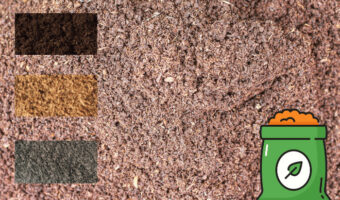Advanced Techniques in Vermicomposting: Maximizing Efficiency and Productivity
About This Course
The course “Advanced Techniques in Vermicomposting: Maximizing Efficiency and Productivity” is designed to provide participants with an in-depth understanding of advanced methods and strategies to enhance the efficiency and productivity of vermicomposting systems. Building upon the foundational knowledge of vermicomposting, this course delves into advanced techniques that can significantly improve the quality of compost, increase processing speed, and optimize resource utilization.
Through a combination of theoretical instruction, practical demonstrations, and hands-on exercises, participants will learn how to take their vermicomposting skills to the next level. They will explore innovative approaches, cutting-edge technologies, and best practices that can transform their vermicomposting operations into highly efficient and productive systems.
Key topics covered in the course include:
Composting System Design and Optimization: Participants will learn advanced techniques for designing and optimizing vermicomposting systems. They will explore considerations such as system size and scale, aeration methods, temperature control, and moisture management. The course will cover strategies to create an ideal habitat for earthworms and maximize their productivity.
Feedstock Selection and Processing: Participants will gain insights into selecting the most suitable feedstocks for vermicomposting and learn advanced processing techniques. They will explore the impact of feedstock characteristics on compost quality and earthworm performance. The course will cover strategies for pre-treating feedstocks, such as shredding, mixing, and adjusting carbon-to-nitrogen ratios to accelerate the decomposition process.
Managing Environmental Conditions: Participants will learn advanced methods to manage environmental conditions within vermicomposting systems. They will explore techniques for optimizing temperature, moisture, pH levels, and oxygen availability to create an ideal environment for earthworms and microbial activity. The course will cover strategies for controlling odours, preventing anaerobic conditions, and minimizing the risk of pests and pathogens.
Vermiculture and Earthworm Biology: Participants will delve deeper into the biology and behavior of earthworms and their role in the vermicomposting process. They will learn advanced techniques for earthworm propagation, including cocoon management, selection of breeding stock, and optimizing reproduction rates. The course will cover strategies for increasing earthworm population density and ensuring their health and vitality.
Monitoring and Assessing Compost Quality: Participants will learn advanced techniques for monitoring and assessing the quality of vermicompost. They will explore methods for assessing nutrient content, microbial activity, and overall compost maturity. The course will cover advanced laboratory techniques, such as spectroscopy and microbial analysis, to evaluate compost quality and tailor compost application to specific crops and soil conditions.
Scaling up Vermicomposting Operations: Participants will gain insights into scaling up vermicomposting operations for larger quantities of organic waste. They will learn about advanced techniques for managing commercial-scale vermicomposting systems, including automation, process optimization, and quality control measures. The course will cover strategies for market expansion, value-added product development, and operational efficiency.
Throughout the course, participants will engage in hands-on activities, case studies, and group discussions to reinforce their learning and gain practical experience in implementing advanced vermicomposting techniques. They will have the opportunity to apply their knowledge in designing and optimizing their own vermicomposting systems, experiment with feedstock processing methods, and assess compost quality.
By the end of the course, participants will have mastered advanced techniques in vermicomposting, enabling them to maximize efficiency, increase productivity, and produce high-quality compost. They will be equipped to implement innovative strategies in their vermicomposting operations, promote sustainable waste management practices, and contribute to a more resource-efficient and environmentally friendly approach to organic waste recycling.
Learning Objectives
Material Includes
- E-Books
- Guide Papers
- Certificate of Completion
This course is best for:
- Experienced Vermicomposters: Individuals who have prior experience in vermicomposting and want to advance their techniques to achieve higher levels of efficiency and productivity.
- Sustainable Agriculture Professionals: Professionals working in the field of sustainable agriculture, organic farming, or waste management, who wish to expand their knowledge and skills in vermicomposting to provide advanced guidance and support to farmers and growers.
- Farmers and Growers: Individuals involved in farming or horticulture who have already implemented vermicomposting systems and want to enhance their understanding of advanced techniques to optimize their compost quality, production rates, and resource utilization.
- Agricultural Consultants and Advisors: Professionals providing consulting or advisory services in the fields of agriculture, waste management, or environmental sustainability, who wish to offer specialized expertise in vermicomposting and support clients in improving the efficiency and productivity of their vermicomposting operations.
- Environmental Educators and Researchers: Educators and researchers focusing on environmental science, sustainable agriculture, or waste management, who want to expand their knowledge and understanding of advanced vermicomposting techniques for teaching, research, or outreach purposes.
- Waste Management Professionals: Individuals working in waste management sectors, such as recycling facilities, composting operations, or waste management consulting, who wish to acquire advanced knowledge in vermicomposting techniques for more sustainable organic waste management practices.
- Commercial Vermicomposters: Individuals involved in commercial-scale vermicomposting operations, such as vermicompost producers or suppliers, who want to enhance their knowledge of advanced techniques to improve operational efficiency, compost quality, and market competitiveness.






